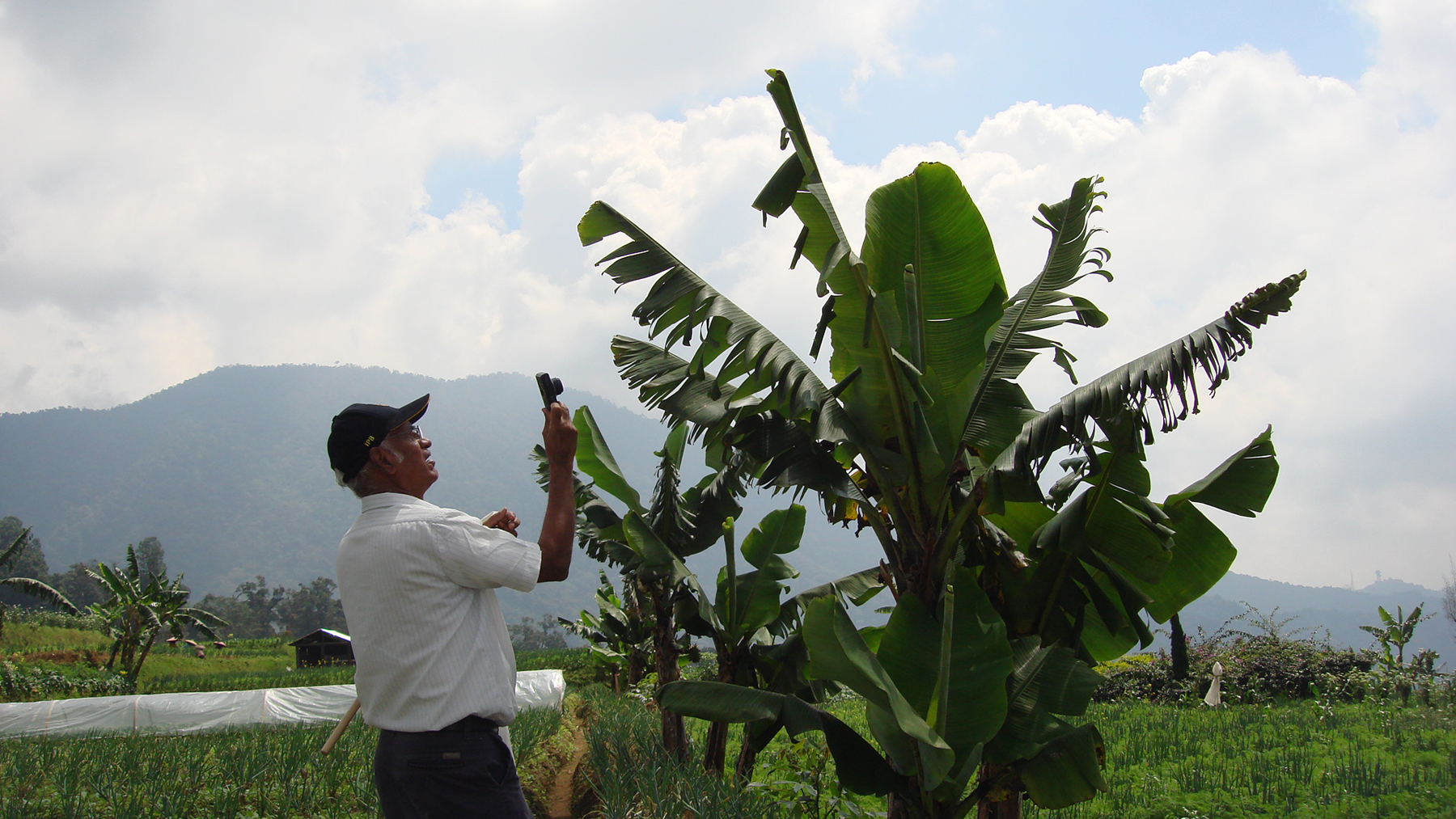Food security in Indonesia focus of new pest management project

The Office of International Research, Education, and Development at Virginia Tech has won an award of $500,000 from the United States Agency for International Development (USAID) to improve food security in Indonesia over a three-year period.
The project, centered primarily on the islands of Java, Sumatra and Sulawesi, will develop integrated pest management packages for high-value vegetable crops, such as tomato, broccoli, peppers, onions, green beans, banana, coffee, cacao, papaya, and pineapple. The packages — sets of techniques that deal with pest problems for a given crop from the time of planting to the time of harvest — allow farmers to produce a greater volume and better quality of these highly-prized crops, most of which are sold for export.
Under terms of the award, made through USAID’s Economic Growth, Agriculture, and Trade office, Virginia Tech will serve as the lead university, overseeing work done by researchers from Clemson University. The American researchers will work with counterpart scientists from Bogor Agricultural University in West Java and Sam Ratulangi University in North Sulawesi as well as with a non-governmental organization headquartered in Jakarta called Farmer Initiatives for Ecological Livelihoods and Democracy.
The project is an associate award to the Integrated Pest Management Collaborative Research Support Program, also funded by USAID, which is dedicated to raising the standard of living of people around the world through environmentally sound agricultural practices. Virginia Tech has managed this program since its inception in 1993.
As agriculture is 44 percent of the employment sector in Indonesia, improvements in agricultural technology make a significant difference to the livelihoods of many people.
“What might seem like a small change in agricultural practices can make a huge difference in the life of a farming family,” said S. K. De Datta, director of the Office of International Research, Education, and Development.
An important aspect of the project will be efforts to tackle virus diseases of plants — a huge challenge in Indonesia.
“One of the biggest agricultural challenges in Indonesia are virus diseases that affect vegetable crops such as tomato, pepper, onions, and green beans,” said Rangaswamy Muniappan, program director for the Integrated Pest Management Collaborative Research Support Program. “This project scales up already existing integrated pest management techniques so that we’ll have more resources to spread the knowledge to the farmers.”
The Office of International Research, Education, and Development is part of Outreach and International Affairs at Virginia Tech, which links the university to the private sector, government agencies, non-government organizations, individuals, and communities in Virginia, the nation, and the world.
Dedicated to its motto, Ut Prosim (That I May Serve), Virginia Tech takes a hands-on, engaging approach to education, preparing scholars to be leaders in their fields and communities. As the commonwealth’s most comprehensive university and its leading research institution, Virginia Tech offers 240 undergraduate and graduate degree programs to more than 31,000 students and manages a research portfolio of $513 million. The university fulfills its land-grant mission of transforming knowledge to practice through technological leadership and by fueling economic growth and job creation locally, regionally, and across Virginia.
Related Links
- Virginia Tech receives $28 million for program in Senegal as part of Feed the Future initiative
- Virginia Tech plans high tech international campus in India
- Two professors direct food security research
- Office of International Research, Education, and Development garners $30 million from U.S. Agency for International Development for two global projects
- University program empowers women through gender workshop in Mali




